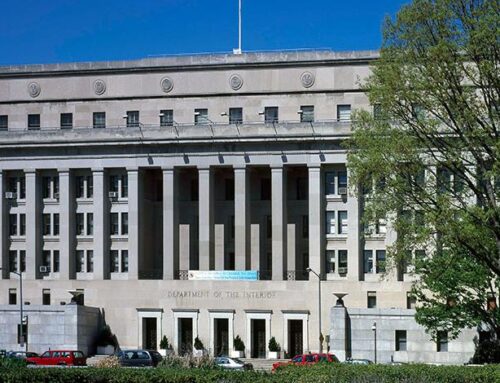Members of the Subcommittee on Energy of the House Committee on Science, Space and Technology met with the Department of Energy (DOE) and stakeholders in the nuclear industry to discuss “The Future of Nuclear Energy” on Thursday, December 11th. While recent reactor closings, a repository for spent nuclear fuel, and the Nuclear Regulatory Commission (NRC) certification process were raised, the hearing largely focused on how the government could better support (subsidize) nuclear energy. Few Members questioned the merit of doing so or what it might cost taxpayers.
During the hearing, the Assistant Secretary for Nuclear Energy, Dr. Pete Lyons, noted that all public-private partnerships to develop advanced nuclear reactors with DOE had previously supported companies through just the NRC’s certification process. He went on to suggest that Congress consider measures to assist developers past that stage, but added that it would come at a cost.
Given the recent history of DOE’s public private partnerships, especially with Small Modular Reactor (SMR) developers, it would be more appropriate for Congress to consider whether the cost DOE is already bearing to support the companies is worth it.
In 2013, DOE selected mPower, backed by Babcock & Wilcox (B&W), and NuScale, backed by Fluor Corporation to receive cost-share agreements worth up to $452 million through its SMR Licensing Technical Support program. But the subsidy failed to convince the two backers that investing in SMRs was worthwhile. Shortly after receiving the awards, both companies started looking to sell off equity in their subsidiaries. Fluor managed to find Enercon, a nuclear engineering company, to invest in NuScale, but B&W was unable to find someone willing to take even a minority stake in mPower. So they cut back on its funding, effectively stalling the project. By the time the move was announced, DOE had already given mPower more than $100 million. DOE now has little to show for it.
Congress learned enough from the experience to cut off all further funding for mPower in appropriations for fiscal year 2015. But the damage has already been done, and the program continues to fund NuScale’s award – at $55 million for the year – despite SMR technology’s utter lack of promise. Instead of discussing more ways DOE could support nuclear energy, policymakers should be focused on how to stop wasting taxpayer dollars.














Get Social